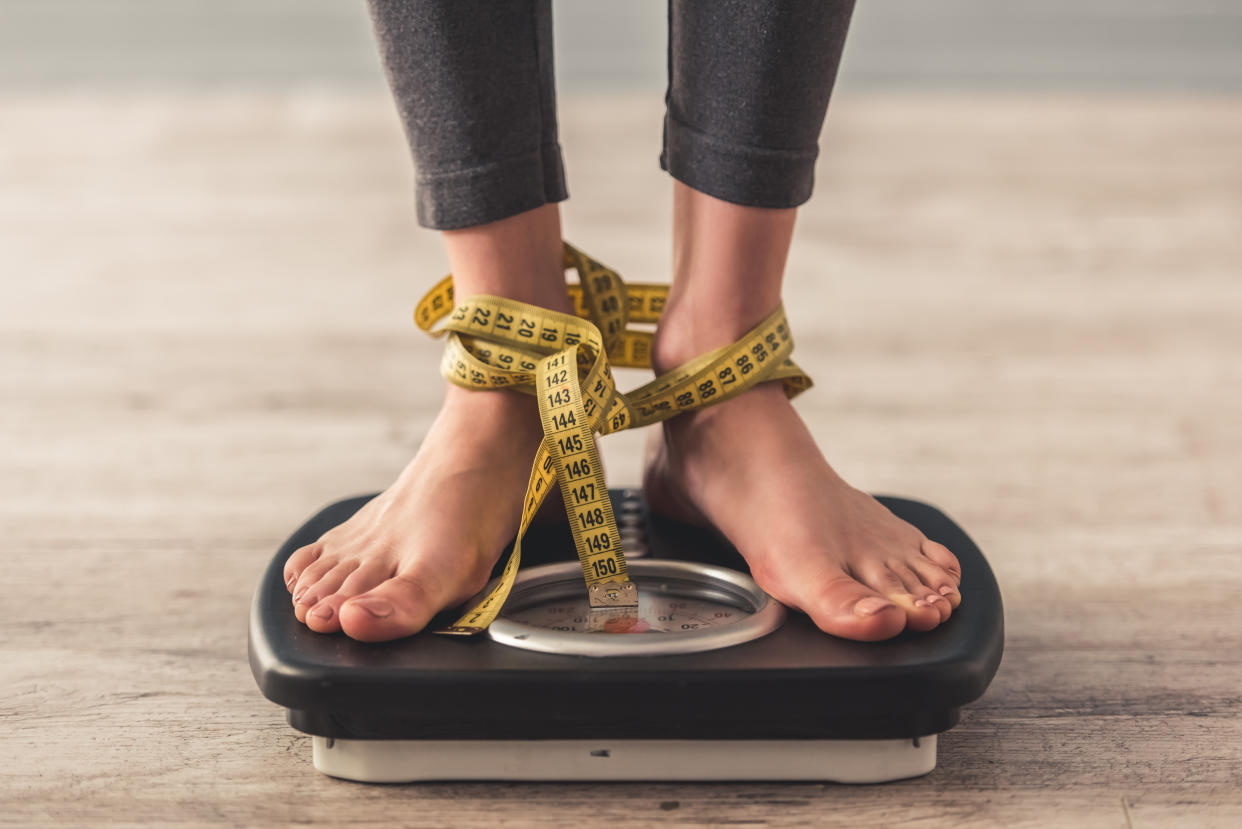Eating disorder hospital admissions up 37% in just two years

The number of people being hospitalised with an eating disorder has risen by more than a third over the past two years, data shows.
NHS Digital statistics reveal 19,040 people were admitted to an English hospital with the condition in 2018/19, a 37% rise from the 13,885 in 2016/17.
READ MORE: Anorexia 'doubles among eight-year-olds in the past decade'
Although people of all ages were affected, children aged 18 or under made up a quarter of cases, with 4,471 hospitalisations.
Six cases of anorexia even occurred in girls aged nine or younger, the BBC reports.
Experts put this apparent rise in eating disorders down to improved, speedier diagnoses.
Anorexia is a serious mental-health illness that occurs when someone restricts their food intake or over exercises, resulting in severe weight loss, according to the UK charity Beat.
Many sufferers have a distorted view of themselves, believing they are larger than they really are.
NHS Digital data for England shows the 13-to-15 year old age group was most commonly affected by anorexia.
More than half (2,403) of the under 18 years olds hospitalised had this form of eating disorder, up 12% on the previous year.
Ten of these incidences occurred in young boys.
READ MORE: Social media may be fuelling eating disorders in children as young as 12
Women aged 19 and over made up 5,274 admissions for anorexia and 3,542 for bulimia.
Bulimia is defined as being caught in a cycle of binge eating, which a patient then “counteracts” by vomiting, taking laxatives, fasting or excessively exercising.
Last year, men accounted for 327 and 381 admissions for anorexia and bulimia, respectively.
“This rise in the number of young people admitted to hospital for treatment could mean the number of young people with eating disorders is increasing”, Tom Quinn, director of external affairs at Beat, said.
“[But] it could also be due to improvement in the ability of healthcare professionals to identify eating disorders.”
Claire Murdoch, national mental health director for the NHS, added: “Waiting times for NHS eating disorder services are better than ever, with nearly 100 new or improved services in the community set up in recent years backed by millions in extra funding.”
READ MORE: Christmas can be 'triggering' for eating-disorder sufferers
Yet Emma Thomas, chief executive of the charity Young Minds, argued it is still difficult for young people to access these services.
She called on the government to make prevention and early treatment a “priority” for children and teenagers with mental-health problems.
Dr Agnes Ayton, chairwoman of the faculty of eating disorders psychiatry at the Royal College of Psychiatrists, wants to see healthcare staff better trained to spot eating disorders early.
Anorexia symptoms can include hiding food, eating slowly, vomiting, excessively exercising, lying about eating, severe weight loss, hair falling out and periods stopping in females.
The above can occur in bulimia sufferers, with them also often having discoloured teeth due to frequent vomiting.
Both conditions can be overcome via therapy, self-help techniques and support groups.
Find out more about eating disorders at Beat’s website.

 Yahoo Lifestyle
Yahoo Lifestyle 
